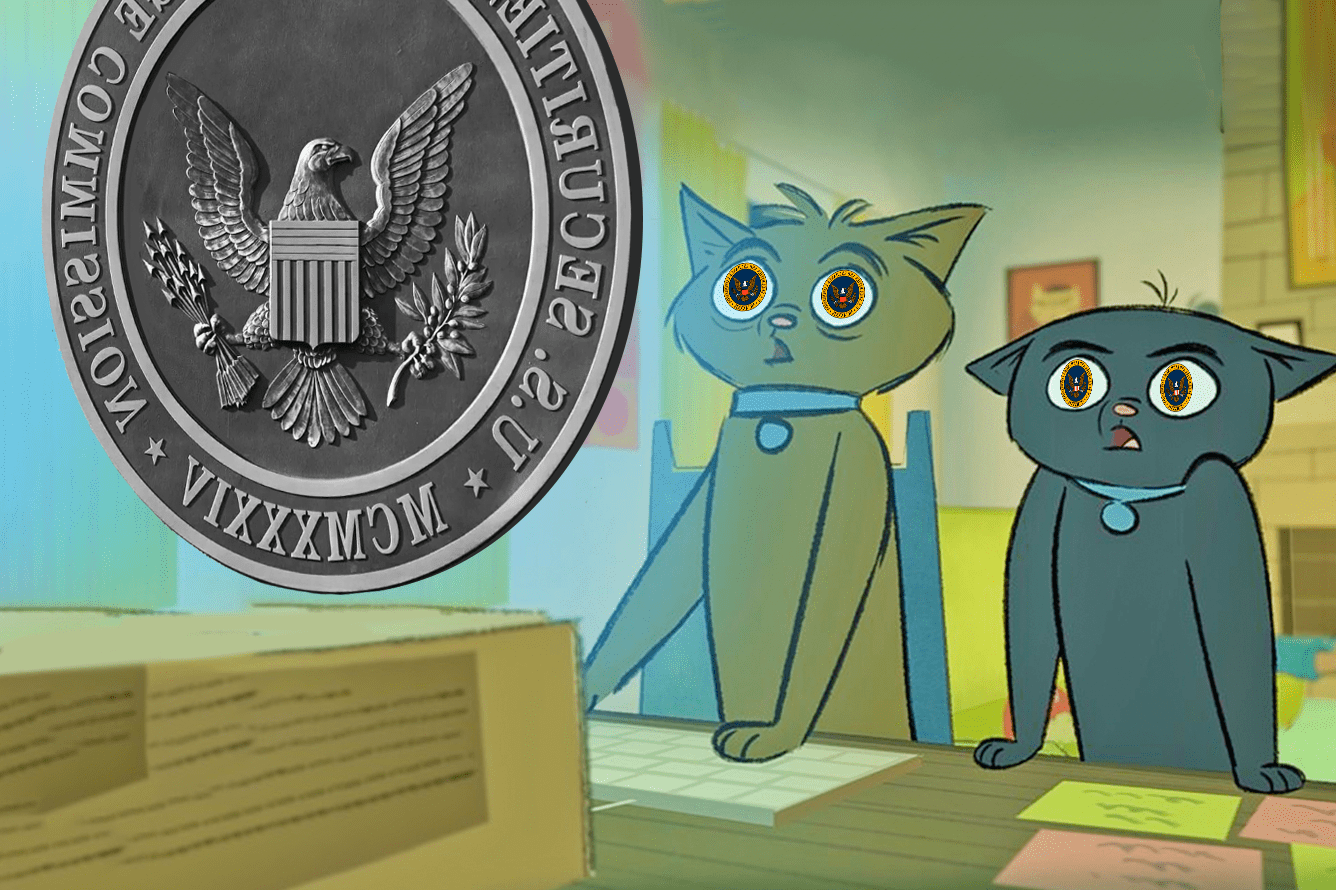
On Wednesday, September 13, the U.S. Securities and Exchange Commission (SEC) filed a legal action against a second NFT-related project, according to a press release. The Stoner Cats web series is accused of conducting an unregistered offering of crypto asset securities.
While the charge may be the same as the one the commission made against Impact Theory two weeks ago, the reasoning behind it is not.
The regulator now appears to be targeting NFTs for the benefits associated with their underlying technology - blockchain - casting an existential doubt over every non-fungible token project to date.
Stoner Cats
Launched at the start of the 2021 NFT mania, the animated web series follows the life of a cat family dealing with their human owner’s early Alzheimer’s disease symptoms. It was one of the first projects in the space to find huge success - the 10,420 tokens sold out in just 35 minutes, causing gas fees on Ethereum to skyrocket.
For the price of $800 each, the unique feline tokens granted buyers exclusive access to the six episodes of the series as well as the creators of the show.
Helping to bring Stoner Cats to life were some of Hollywood’s finest talent (including Jane Fonda and Chris Rock), movie-producing veterans, and blockchain experts (the creator of CryptoKitties played a vital role). The team, headed by actress Mila Kunis, even got Ethereum co-founder Vitalik Buterin to voice the character of Lord Catsington.
SEC’s Accusation
The commission’s case against the project is anchored on two aspects of the series marketing campaign. Namely, that the NFTs were promoted as tradable items, and that the project was created by an all-star team.
The cease-and-desist order states that buyers were led to assume the project was valuable because of the name-dropping marketing campaign. As they were also told that the tokens were tradable, they were led to expect gains from future sales.
As SEC commissioners Hester Peirce and Mark Uyeda pointed out in a statement of dissent against the lawsuit, this reasoning “carries implications for creators of all kinds,” as virtually every art piece or collectable item can be sold in secondary markets, often for a higher price than it was previously bought.
The type of fundraising Stoner Cats did is also common practice among artistic projects. Drawing a parallel to the sale of Star Wars collectibles sold around Christmas of 1997 that would later be redeemable for action figures of the main characters, Peirce and Uyeda noted that, using the standards the commission is enforcing on NFTs, “the SEC should have parachuted in to save those kids from Star Wars mania.”
Similar thoughts were expressed by the pair following the commission’s first legal action against an NFT collection two weeks ago. But this time, there is an added layer of concern - the SEC is seemingly targeting any use of blockchain technology.
If Stoner Cats NFTs are considered securities because they can be traded, then all NFTs can be seen as securities since easy, fast, and cheap transferability is a fundamental aspect of the underlying technology of every token, fungible and non-fungible.
This, according to the dissident SEC commissioners, cast a “shadow of legal ambiguity” on every digital collectibles project, whose NFTs can become securities overnight, its operations forced to stop, all investment made be lost, and the team be required to pay significant fines - Stoner Cats was ordered to pay $1 million.
Chaired by Gary Wilsner, the commission seems to willfully mute the pleas coming from colleagues, industry giants, artists, and users, begging for clear guidelines. Instead, it remains committed to enacting strict enforcement actions against all things crypto.
By stepping into the realm of NFTs, the SEC now appears to be trying to discourage “content creators from exploring ways to harness social networks to create and distribute content.” We can only hope that it won't succeed.

